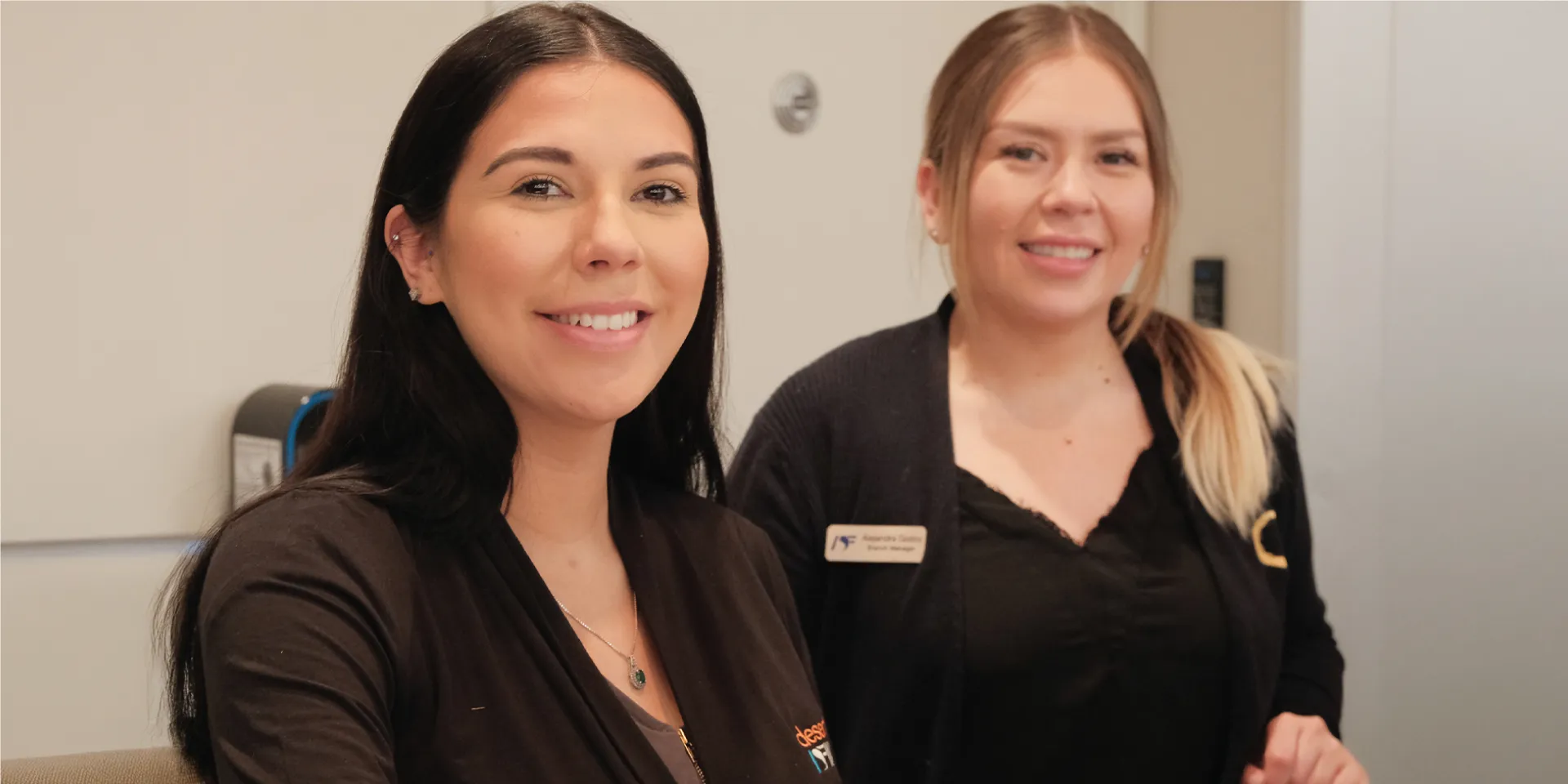
Financial Education
Advantages of debit cards for teens
In this article
- Teens and debit cards: How to introduce responsible debit card use to promote financial independence to your teen.
- Parental control: Manage teen spending with joint accounts and alerts.
- Financial learning: Teach budgeting and money skills through online banking and debit cards.
As your child grows, so does their need for independence — and that includes financial independence too! To give your teen more financial freedom, start by helping them establish a checking account that offers a debit card.
A debit card is like a teenager’s training wheels for cashless responsible spending. It’s known to be a fundamental tool in teaching a young adult about smart decision-making, thoughtful spending and monitoring an account balance. Ultimately, a debit card will help your teen learn how to live within their means. Does your teen still use cash? Check out the following benefits of and tips for introducing your teen to debit.
Ditch dollars and coins
Teens don’t want to use cash for the same reasons you probably don’t. It can be inconvenient to handle dollars and coins at a store. Today’s tech-savvy teens are also pros at shopping online and using their phones for — everything. With a debit card, a teen can make online purchases, as well as store their card information in their phone’s digital wallet, payment apps and other apps like Uber Eats.
Teach about online banking
For a teen to monitor their spending, it’s helpful for them to get used to checking their account balance. Consider this to be a prerequisite to starting and following a budget. Give your teen a basic tour of online banking and show them how tracking their purchases helps them learn about good and bad spending patterns. Review the transactions together and identify areas in need of improvement while acknowledging what they’re doing right.
Warn about fraud
As your teen learns the ropes of reviewing their account, touch on how they also need to regularly scan their account for suspicious activity and unauthorized transactions. This leads to a conversation about security and fraud — along with the importance of keeping the card in their possession at all times and never giving out information like the PIN and/or card numbers.
Also, explain that they could possibly receive fraudulent phone calls emails or text messages from a scammer saying they’re from your teen’s financial institution, asking for personal or financial information such as their Social Security number or online banking log in information. You’ll want to emphasize that even if they seem legitimate, they should never give out these details and always let you know if they encounter a situation like this.
Tip: At Desert Financial, our Visa® Debit Cards have built-in security features to help protect against fraudulent activity and we act quickly to alert our members of any suspicious debit card activity we may spot. We also make it easy to report fraudulent charges or lost/stolen cards immediately within Online Banking. For more information about fraud, scams and identity theft protection, visit DesertFinancial.com/Fraud.
Encourage mistakes
Giving your teen the responsibility of using a debit card opens the door to valuable money lessons like understanding how to spend within limitations, setting savings goals, separating needs from wants and overcoming the need for instant gratification. Paying with a debit card is also a safe way for a teen to make mistakes during these lessons, under your supervision and support, without serious consequences like a damaged credit score or skyrocketing credit card debt.
Tip: Let’s say your teen gets paid and then spends all of their money within the first week. Now that they’re “broke,” they learn about the importance of being conscious about spending and making sure their money lasts between paychecks or an allowance.
Let go of control
Managing a debit card teaches teens about earning, spending and saving money, but it can also teach you, the parent, to take a somewhat hands-off approach to financial education. It’s hard to loosen the grip but it’s healthy to give kids some financial independence. If your teen understands that you’re trusting them, they may be more motivated to act responsibly while gaining a sense of adulthood.
Kids start to become curious about money at a young age, which is why many parents are eager to teach their children about money and then build on that financial literacy as they grow.
By the time they reach their teenage years, why not give them the responsibility of trading in cash for a debit card? Here at Desert Financial, teens can have their own checking account with a debit card starting at age 13 with qualifying adult as a joint account owner. A debit card for teens will help your child get the training they need before moving onto a credit card while gaining experience in mindfully spending money and holding themselves accountable.
Related content
Subscribe to our blog
Fill out the form below to sign up for our blog.







